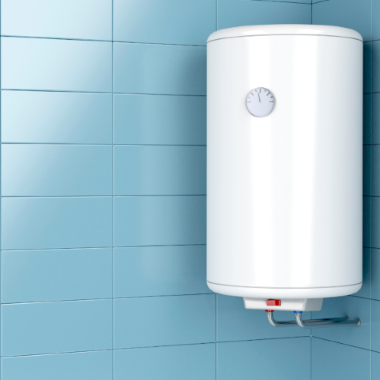· energy efficient home upgrades · 3 min read
Is going Tankless Thankful?
Bid farewell to the constant energy drain of maintaining a hot water tank. Tankless water heaters deliver hot water precisely when you need it.

The Inflation Reduction Act has incorporated tankless water heaters into its provisions under the Energy Efficient Home Improvement Credit (25C), covering 30% up to $600 for ENERGY STAR models with a UEF greater than 0.95. Verify with Energy Star This decision was made to recognize their exceptional ability to save energy. Additionally, many state governments and local utilities offer rebates and incentives, which you can explore through the Database of State Incentives for Renewables & Efficiency. This inclusion offers homeowners both immediate comfort and long-term financial advantages. In this comprehensive guide, we’ll explore everything you need to know about tankless water heaters, with a special focus on top recommended brands like Rinnai and Rheem.
How Tankless Water Heaters Operate
Bid farewell to the constant energy drain of maintaining a hot water tank. Tankless water heaters deliver hot water precisely when you need it, eliminating the energy waste associated with constantly heating a storage tank. When you activate a hot water tap, cold water flows into the unit and is instantly heated. These heaters can be 24%–34% more energy-efficient for homes that use a moderate amount of hot water and up to 14% for larger homes.
Types of Tankless Water Heaters
Non-Condensing Units: These models release exhaust gases outdoors and may necessitate specialized stainless-steel venting. Generally, they are less expensive upfront but might be less efficient in the long run. They are ideal for homes with existing venting systems.
Condensing Units: These units capture and reuse heat from the exhaust, offering higher energy efficiency. They can be vented using standard PVC pipe but are usually more expensive upfront. They are best suited for new installations where higher upfront costs can be offset by long-term energy savings.
The Advantages of Choosing a Tankless Water Heater
Exceptional Energy Efficiency: These heaters excel in delivering hot water on-demand, significantly reducing energy consumption. This makes them a prime choice for individuals aiming to decrease their utility bills.
Space-Saving Design: Their compact size allows for more flexible installation options, freeing up valuable space in your home.
Unlimited Hot Water: Since water is heated on demand, you’ll never run out of hot water, even during peak usage times.
Longevity: With appropriate maintenance, these heaters can last up to 20 years or more, outlasting traditional tank models which usually last 10-15 years.
Top Recommended Brands
Rinnai: Renowned for its innovative technology, Rinnai offers models suitable for both residential and commercial use. Their units feature Wi-Fi connectivity for remote monitoring and control.
Rheem: Rheem specializes in energy-efficient solutions with advanced features like self-modulating technology that adjusts energy usage based on demand.
Additional Considerations
Installation Costs: While offering long-term savings, the initial installation cost may be higher. It is recommended to opt for professional installation to ensure optimal performance.
Water Quality Considerations: In areas with hard water, a water softener may be necessary to prevent mineral buildup.
Seasonal Considerations: These units are designed to perform well in various weather conditions, including extreme cold.
Conclusion
Tankless water heaters represent a significant advancement in home energy efficiency. By understanding the various models, features, and additional considerations, homeowners can make an informed decision that aligns with their financial and environmental goals.